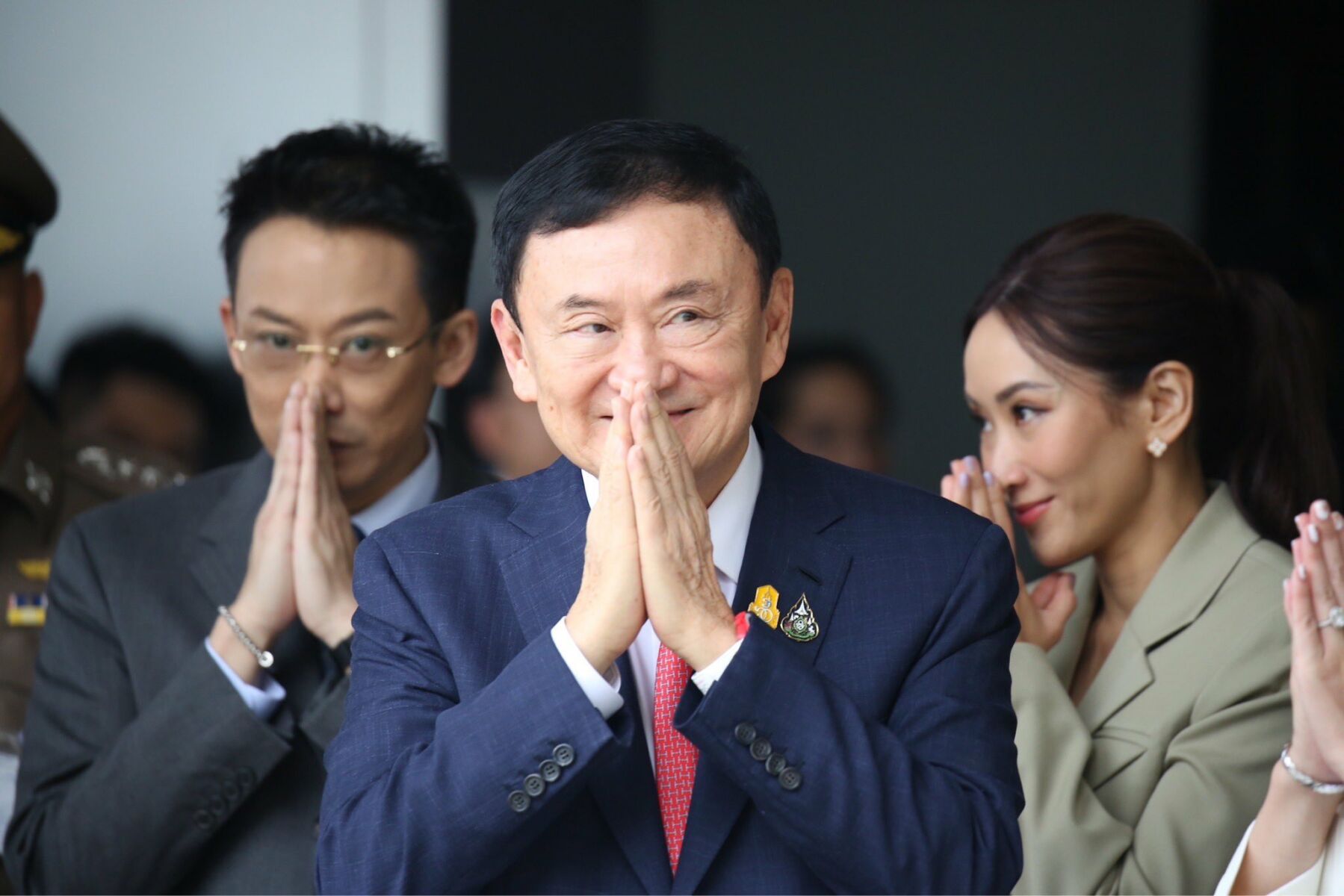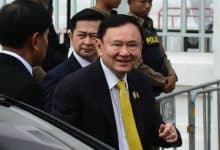Thaksin Shinawatra’s 15-year exile ends with immediate jail term upon return (video)

Former Thailand Prime Minister Thaksin Shinawatra was jailed this morning only hours after his aeroplane touched the tarmac at Don Mueang International Airport in Bangkok – ending his 15-year self-imposed exile. The 74 year old ex PM’s aircraft landed at 9am today and he was immediately escorted to the Supreme Court to acknowledge and begin an eight-year prison sentence.
Despite Thaksin’s assertions that his decision to come back was unrelated to the Pheu Thai Party’s quest for power, widespread speculation persists that the party brokered agreements with pro-military factions to facilitate the return of the telecommunications magnate.
The Pheu Thai Party is the latest in a series of political entities founded by Thaksin or his associates, several of which were ousted from power through military coups. This history has resulted in years of turmoil and division, pitting a predominantly rural and pro-Thaksin majority in the north against royalists, the military, and their urban supporters.
Upon departing the airport, Thaksin respectfully placed a floral wreath and prostrated himself before a portrait of Thailand’s king and queen. He exchanged greetings with supporters and the awaiting media outside the terminal but refrained from making any statements.
Hundreds of his followers congregated outside the airport well ahead of his arrival, adorned in red – a colour long associated with Thaksin – and brandishing signs with welcoming messages. Demonstrating their unwavering loyalty, they celebrated with songs and chants, erupting into exuberant cheers upon his appearance.
In bygone decades, Thaksin championed populist policies, leveraging his telecommunications wealth to establish the Thai Rak Thai party, securing his election as prime minister in 2001 and achieving re-election with ease in 2005. However, his tenure was truncated by a military coup in 2006, propelling him into exile a few years later. Tried in absentia on corruption charges he dismissed as politically motivated, he was sentenced to eight years in prison.
Thaksin’s convoy traversed from the airport to the Supreme Court, where a special body responsible for criminal cases involving former officeholders affirmed the sentence. Subsequently, he left the court premises and was transported to Bangkok’s main prison.
Thailand’s influential ex-PM Thaksin Shinawatra has been arrested and taken to prison on his return to the country after 15 years in self-imposed exile ⤵️ pic.twitter.com/7fDP25sXYs
— Al Jazeera English (@AJEnglish) August 22, 2023
Officials at Bangkok Remand Prison disclosed during a press briefing that, following a medical assessment, Thaksin’s age and chronic cardiac and pulmonary conditions, including hypertension, had rendered him “vulnerable.” As a new inmate, he will undergo a mandatory 10-day quarantine period. His confinement will occur in the prison’s medical wing, where he will be closely monitored due to safety and health considerations.
Less than a week before the May General Election, Thaksin announced his desire to return before his birthday in July. However, the plan faced multiple postponements, attributed to both post-election uncertainties and health-related concerns.
Despite securing second place in the elections, Pheu Thai assumed leadership in government formation after the surprise victor, the progressive Move Forward Party, faced rejection by conservative senators appointed by a prior military administration. Move Forward’s reformist agenda resonated deeply with numerous Thais, particularly younger voters disillusioned by nearly a decade of military-backed governance. However, it also posed a threat to the country’s conservative elites.
Following over three months without a new government, the Thai Parliament convened to once again select a prime minister. Pheu Thai’s nominee, former property developer Srettha Thavisin, was the sole candidate put forth by party leader Chonlanan Srikaew. Pheu Thai spearheaded the bid to establish a government by forming an 11-party coalition, even including two parties allied with their former military adversaries, collectively controlling 314 out of 500 seats in the House of Representatives, reported Newsinfo.
Criticism from some of its supporters has been directed at Pheu Thai for reneging on a pre-election vow to refrain from collaborating with pro-military factions. Party officials have defended their decision, citing the necessity to break the political impasse and foster reconciliation after decades of profound political fragmentation.
Thaksin’s prison sentence may only be curtailed by a royal pardon. Deputy Prime Minister Wissanu Krea-ngam from the outgoing military-affiliated government indicated that Thaksin could request clemency, which may be influenced by his advanced age.
Napon Jatusripitak, a political science researcher and visiting fellow at Singapore’s ISEAS-Yusof Ishak Institute, suggested that Thaksin’s current return indicates that “he has received assurances that he will not have to serve a prison sentence in full.”
Latest Thailand News
Follow The Thaiger on Google News:


























